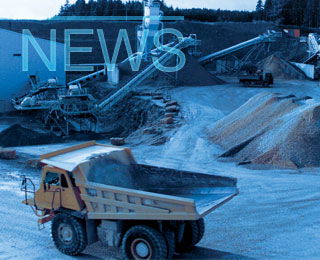The US Energy Department has announced more than US$1.2bn in federal funding for four decarbonisation projects in the US cement industry. In total, the energy department has pledged US$6bn in funding for 33 industrial projects designed to reduce carbon emissions across not only the cement industry but also iron and steel, concrete, aluminium, chemicals, food and beverages, and pulp and paper, which collectively account for around one third of US carbon emissions.
Commenting on the announcement, the US Portland Cement Association (PCA) called the funding a welcome acknowledgement from the government that US cement manufacturers are taking ambitious and significant steps toward reaching carbon neutrality. “This will move the needle closer to achieving what industry considers the ‘heavyweight’ of carbon solutions: carbon capture utilisation and storage (CCUS). Once established nationwide, CCUS will greatly accelerate cement manufacturers’ charge toward net zero,” added Mike Ireland, president, PCA.
The four projects receiving the funding, all of which are PCA members, include the Heidelberg Materials Mitchell plant, which has been awarded up to US$500m to build and operate an integrated carbon capture, transport and storage system capable of capturing at least 95 per cent of the plant's CO2 emissions. National Cement Co of California has also been awarded up to US$500m for its Lebec net zero cement plant project, which plans to use locally-sourced biomass and replace clinker with calcined clay to produce limestone calcined clay cement, capturing around 0.95Mta of CO2.
Summit Materials will receive up to US$215.6m for its low-carbon calcined clay cement demonstration project, which aims to build four new calcination facilities in Maryland, Georgia, and Texas. The project, which has the potential to prevent 1.1Mta of CO2, will demonstrate the viability of displacing limestone-based cement with a clay-based product across multiple geographies. A further US$61.7m has been earmarked for the limestone calcined clay cement production project at Roanoke Cement Co's Troutville plant in Virginia. This project hopes to validate the market for calcined clays in a region with high demand for the material, while reducing the carbon intensity by around 83 per cent.
